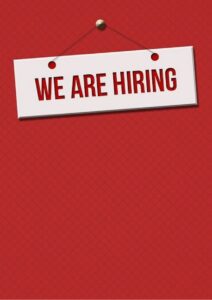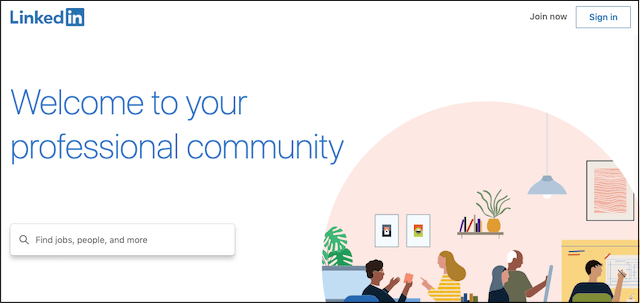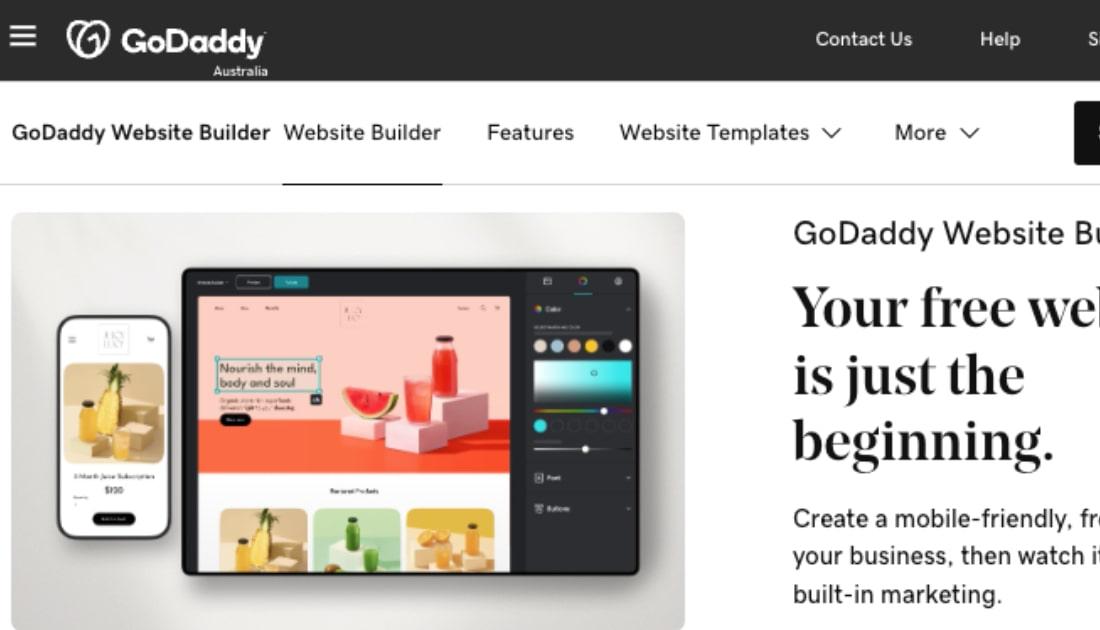If you’re looking for new career opportunities, the future looks bright. Whether it’s getting a promotion or jumping ship into a new company, now is the perfect time to reflect on where you want to go this year.
You are likely going to work on average 38 hours a week for the majority of your working life.
By managing your career effectively, you can make the best of those 38 hours.
Editor’s note: Put your best foot forward with a portfolio website. When combined with a nice LinkedIn profile, it shows potential employers you’re serious. Get started now free.
Expand your options in 4 steps
We have four strategies that you can start using straightaway to help you open up some career opportunities.
- Start planning.
- Get comfortable with self-promoting.
- Spend some time on LinkedIn.
- Start networking.
We’ll close with a list of the 10 skills you need to get ahead in 2020.
1. Start planning
The average person can expect to change careers five to seven times in their lifetime. That’s a lot of change.
The best way to be prepared for this is to plan out your career.
Career planning is an important aspect of your life, but don’t put so much pressure on yourself that it prevents you from making any progress.
The truth is, a new role may not happen straightaway. The timeframes depend on the level of qualification and experience you need to have. Once you know, you can start working backwards.
Answer these questions first

Begin by listing down some actual action items against a new role you’d like to explore. Or will it be a new organisation entirely … and if so, what does it look like?
A blank canvas can be daunting, so some starting questions to consider are:
- What is your current career situation? Before you can do any planning, you need to be clear about your starting point.
- What is your lifestyle now and what do you want it to be?
- What sorts of activities do you enjoy and what do you avoid?
- What are you passionate about? What gets you most energetic and engaged?
- What are your values?
- What are your strengths and weaknesses from an employer’s perspective?
- What's your definition of success — wealth, power, flexibility, contentment?
- How would you describe your personality? Are you an extrovert or an introvert? Do you like sitting behind a desk or being on the move?
Think about any career ‘blockages’ you’ve encountered. They could be family pressures such as expectations to work in the family business or parental expectations of what your career should look like. There are also personal barriers such as lack of motivation or procrastination. Be honest with yourself.
Stuck for ideas? Look at the growth industries
If you’re not sure which career paths to consider, have a look at some of the growing industries in Australia. According to Jobs Outlook, the top industries for jobs growth will be:
- Healthcare and social assistance
- Construction
- Education and training
- Professional, scientific and technical services
Almost two in every three new jobs created will come from these four industries.
The reasons for this growth is our ageing population, along with increased demand for childcare and home-based service.
There is also rising demand for qualified workers in computer system design, and the management and consulting services sectors.
Related: Plumbing apprentice jobs — where to look
2. Get comfortable with self-promoting
If you’re actively pushing for a promotion or planning on interviewing in the next six months, you’ll need to make a list of all your:
- Career achievements
- Career goals
- Skills you have
- Experience
- Training or education
In the land of the ‘tall poppy syndrome,’ it can make a lot of us uncomfortable to talk about ourselves. Almost 70% of us say we don’t like to talk about our ambitions for fear of being labelled a ‘bragger.’
The phrase "self-promotion" makes a lot of people cringe, but it's the best way to achieve your career goals.
Start keeping a journal
We recommend keeping a journal or a log of achievements. Make it a habit to jot down some details at the end of every week. They could be personal or professional. Quantify or qualify the accomplishment — what did you bring to the achievement that made it happen?
This achievement log will come in handy when:
- Doing your performance appraisals
- Negotiating for a pay rise
- Applying for jobs
- Prepping for a job interview
- Nominating yourself for an award
It’ll also be useful when starting or updating your LinkedIn profile (more on this next).
3. Spend some time on LinkedIn

LinkedIn is a fabulous way to put your resume in front of many business leaders, recruiters, peers and organisations. The platform allows you to personally connect with millions of professionals all around the world.
LinkedIn allows you to connect to others in similar fields of work by simply messaging them — even if you have never spoken to the person before.
Of course, you can also use it to reconnect with a former colleague or classmate and ask for recommendations or endorsements.
If you’re actively thinking about a career change, make sure your profile is authentic and inviting. You should be clear about what you want to achieve. That will help recruiters find you and open new doors.
Clean up your social history
While LinkedIn is probably going to be your main platform for career growth, it’s always a good idea to ensure that all your other social media profiles are tasteful. Recruiters and hiring managers do check social profiles to get an idea of what you are like first before meeting you.
4. Start networking
Despite our world being so digital, there is still a lot of value in meeting people face-to-face. There are plenty of networking events and meetups around for every industry and topic you can imagine. All you need to do is find the right one and get out there.
Be brave enough to introduce yourself to new people and be disciplined enough to put the effort into building and maintaining promising relationships.

Even though networking can be awkward and intimidating, don’t go into it with the expectation of getting a new job straightaway or collecting business cards. Just be yourself and simply try to make a new friend. People will quickly realise if your intentions are self-serving.
The skills you need to succeed in 2020
There are some skills that will greatly increase your career opportunities. The World Economic Forum reports that you need the 10 skills listed below to thrive in 2020:
- Complex problem-solving
- Critical thinking
- Creativity
- People management
- Coordinating with others
- Emotional intelligence
- Judgement and decision making
- Service orientation
- Negotiation
- Cognitive flexibility
Review the skills you currently have and look at ways of developing any on this list you don’t yet have. Your quest to learn them could open doors to new people and opportunities.
Multiply your career opportunities
Career planning is an ongoing process. If you’re unsure about where to start, consider some of the growing industries in Australia, such as healthcare and construction. You can always use some of your existing skills and experiences to forge a new career in one of these industries.
Opening up the doors to new opportunities also means you need to continue connecting and building relationships – both online and face-to-face.
We wish you all the best with your career — may 2020 and beyond be successful.







